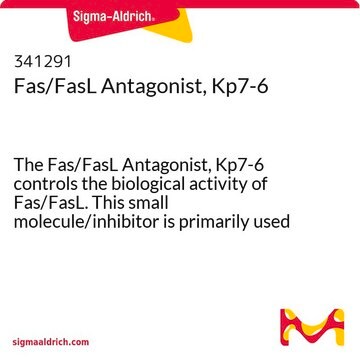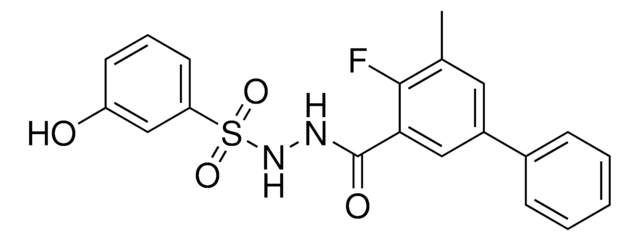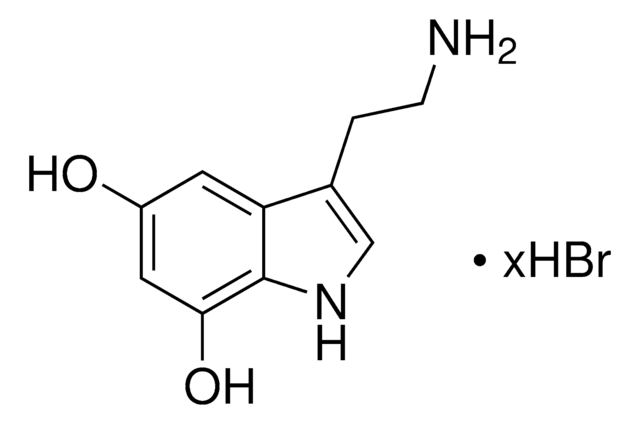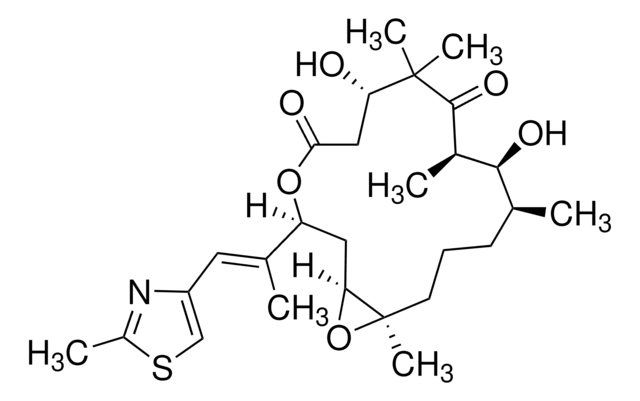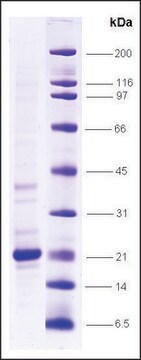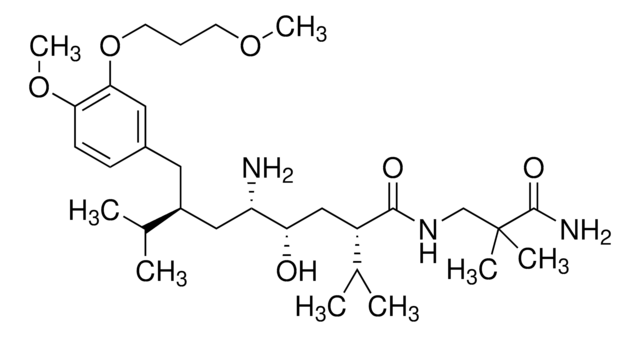SRP3036
Fas Ligand human
recombinant, expressed in CHO cells, ≥95% (SDS-PAGE), ≥95% (HPLC), suitable for cell culture
Synonyme(s) :
APTL, Apo I Ligand, CD95L, TNFSF6, soluble Fas Ligand (sFasL)
About This Item
Produits recommandés
Source biologique
human
Produit recombinant
expressed in CHO cells
Essai
≥95% (HPLC)
≥95% (SDS-PAGE)
Forme
lyophilized
Puissance
≤10.0 ng/mL
Poids mol.
17.9 kDa
Conditionnement
pkg of 10 μg
Technique(s)
cell culture | mammalian: suitable
Impuretés
<0.1 EU/μg endotoxin, tested
Couleur
white to off-white
Adéquation
suitable for molecular biology
Numéro d'accès UniProt
Conditions d'expédition
wet ice
Température de stockage
−20°C
Informations sur le gène
human ... FASLG(356)
Description générale
Application
Actions biochimiques/physiologiques
Séquence
Forme physique
Reconstitution
Code de la classe de stockage
11 - Combustible Solids
Classe de danger pour l'eau (WGK)
WGK 3
Point d'éclair (°F)
Not applicable
Point d'éclair (°C)
Not applicable
Faites votre choix parmi les versions les plus récentes :
Déjà en possession de ce produit ?
Retrouvez la documentation relative aux produits que vous avez récemment achetés dans la Bibliothèque de documents.
Notre équipe de scientifiques dispose d'une expérience dans tous les secteurs de la recherche, notamment en sciences de la vie, science des matériaux, synthèse chimique, chromatographie, analyse et dans de nombreux autres domaines..
Contacter notre Service technique